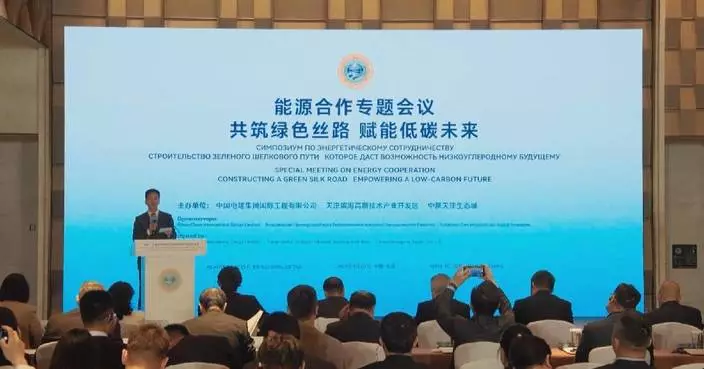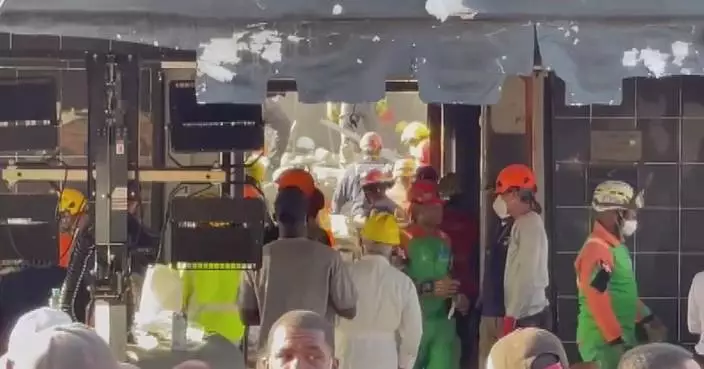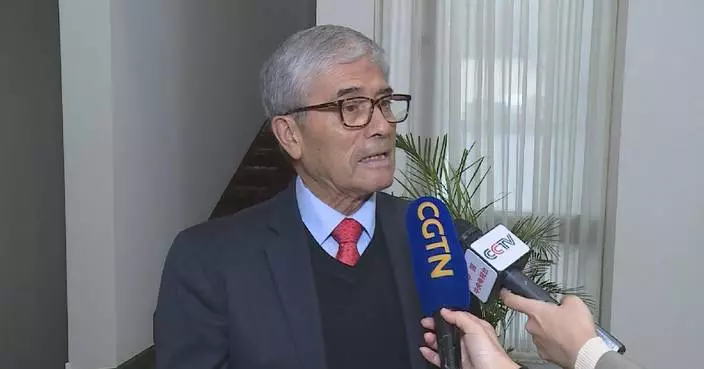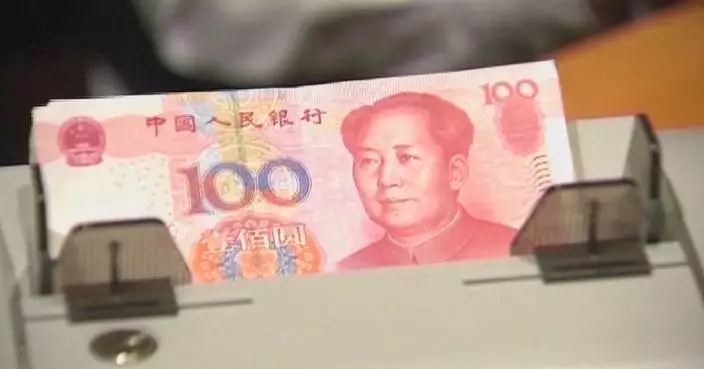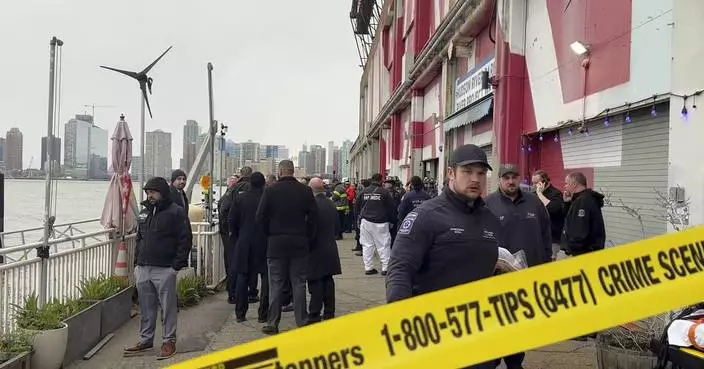A survivor was miraculously pulled out alive from beneath the rubble of a collapsed hotel in central Myanmar's disaster-hit Mandalay City on Wednesday, more than five days after a devastating earthquake rocked the country.
The male survivor was said to be in a stable condition after spending nearly 125 hours buried among the ruins of the Golden Country Hotel building following Friday's deadly quake, which has claimed more than 2,800 lives and injured over 4,600 others in Myanmar.
The stricken man was pulled out at around 17:40 local time on Wednesday following a carefully coordinated operation conducted by Chinese rescuers who have been participating in the large-scale emergency response following the deadly quake.
Footage from the site showed rescuers clearing debris from a narrow opening to gain access to the victim, who had spent days trapped in a lower floor of the collapsed building. He was then cautiously placed onto a stretcher and fed water, before being slowly carried to a waiting ambulance to the huge relief of all those present at the site.
The survivor has since been transported to a local medical facility to receive further treatment following his ordeal.
The rescue marks the ninth survivor to have been pulled from the rubble by Chinese rescuers in Myanmar as efforts continue to locate others who may still be trapped.
The powerful 7.9-magnitude quake, the strongest recorded in the country in a century, rocked the Sagaing Region of Myanmar, with the epicenter close to Mandalay, the country's second-largest city.

Miracle as quake survivor pulled alive from collapsed Mandalay hotel after 125-hour ordeal

Miracle as quake survivor pulled alive from collapsed Mandalay hotel after 125-hour ordeal
The universal "reciprocal tariffs" imposed by the United States signals a decline in the U.S. economic dominance and dollar hegemony, as the country is attempting to extract excessive financial benefits from its trading partners, according to economists, who warn the Trump administration is playing a "dangerous game".
U.S. President Donald Trump last week signed an executive order on the so-called "reciprocal tariffs," imposing a 10-percent "minimum baseline tariff" before unveiling higher rates on certain trading partners. The policy sent shockwaves throughout the global economy and triggered panic on financial markets, with analysts warning of significant risks and dire economic consequences.
In an interview with the China Global Television Network (CGTN), Hong Hao, chief economist of the GROW Investment Group, a Shanghai-based hedge fund, said the tariffs reflect Trump's strategy to extract economic benefits from trading partners, particularly viewing China as a significant competitor. "Trump really believes that the trade terms with the trading partners have been unfair to the U.S., and as a result, the U.S. manufacturing sector has been hollowed out. Therefore, the U.S. is paying an excessive price for globalization, and now, it's time to pay back. I think, from this angle, he is trying to extract economic rent from its trading partners, and also he is trying to see China as one of the major U.S. rivals at this juncture. So, I think, as a result, he is playing a very dangerous game. And, as you can see, it's political theater in the sense that he is trying to dramatize the extreme pressure, so that he can get excessive rent from the opponent," he said
Trump's unilateral imposition of tariffs has eroded global confidence in the U.S. and its dollar's status, leading many to state that the American hegemony may not persist, according to Josef Gregory Mahoney, a professor of politics and international relations at East China Normal University.
"The U.S. economy is at an inflection point. There is a moment where the previous strategies being used to sustain American hegemony were no longer working. And, it's only a matter of time before the U.S. position erodes, given the fact that it's been a house of cards built on the dollar supremacy. And a lot of people don't see that as having a brighter future. This has moved past the theater stage and has moved really directly into one in which no one really has confidence in the U.S. anymore. No one has confidence in the dollar. No one has confidence in the U.S. being committed to the multilateral system, to global trade and so forth and so on," he said.
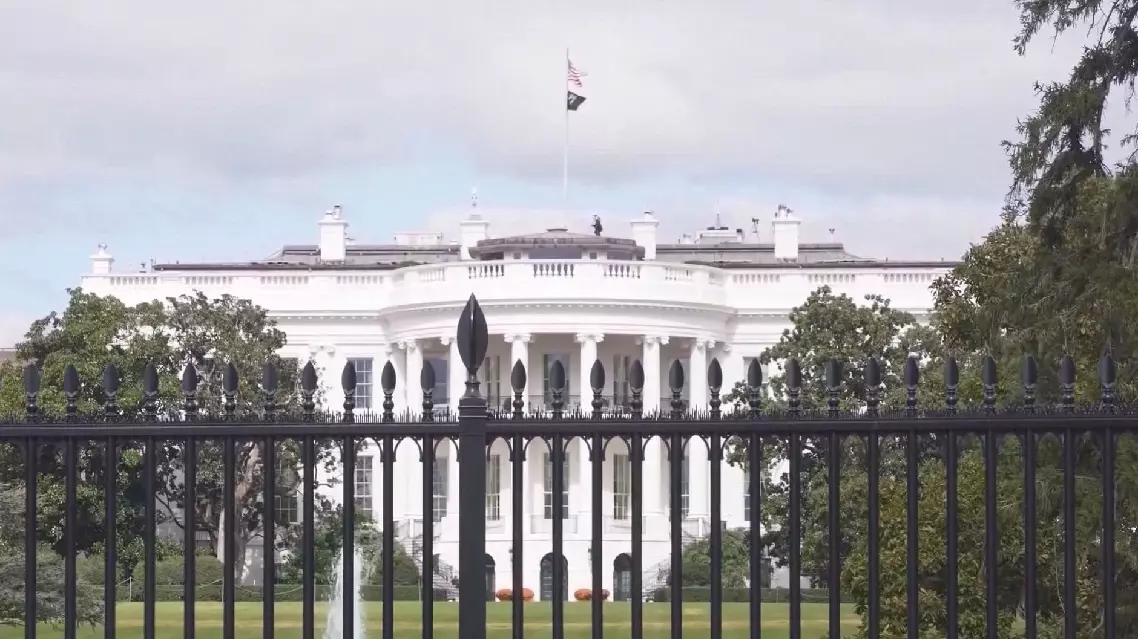
Trump playing "dangerous game" as tariff measures signal decline in U.S. dollar hegemony: economists






